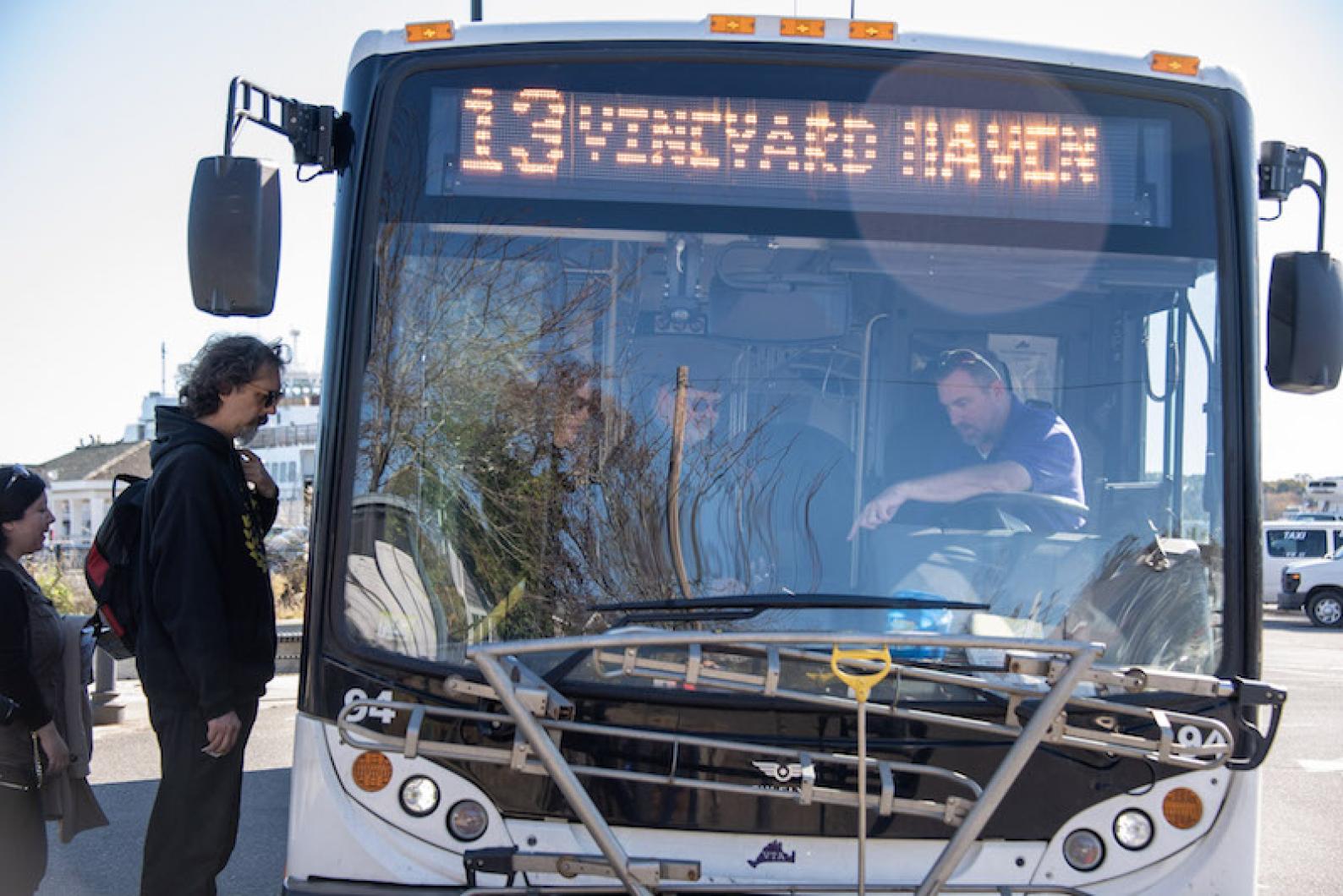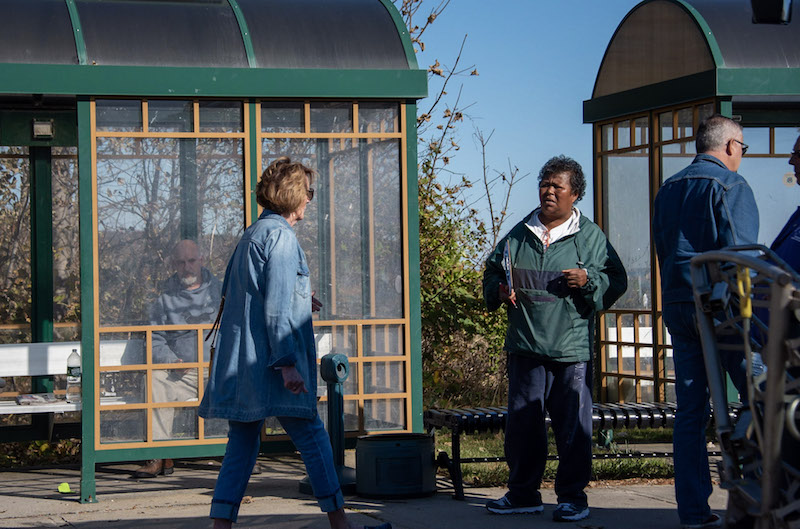As curtailed off-season service begins on the Island’s only public bus system this fall for the first time in years, the Vineyard Transit Authority is seeing pushback from riders, as well as drivers and their new union.
A union-backed petition began circulating last week by a citizen group calling itself the Coalition to Restore Vineyard Transportation.
“The coalition is working on developing community support for riders and drivers around the service cutbacks and the VTA’s ongoing lack of transparency and accountability,” said Susanna Sturgis, an organizer. “We are asking people to talk to their selectmen.”
The first in a series of off-season service reductions began on Sept. 29. More cutbacks are due to take effect Dec. 1. Transit authority leaders said trimming routes is necessary to rein in a projected $1 million budget deficit for the coming fiscal year.
Higher insurance premiums, a lease renewal on the VTA operations center in the airport business park, and wage increases for drivers under the first union contract inked this summer have added up on the expense side of the ledger, VTA leaders said.
Information about the route changes are posted on the VTA website, but many riders said while winter cutbacks were expected and announced, reduced fall service came as a surprise.
Curtailed service this fall includes fewer buses on routes and also earlier shutdown times, with most service on down-Island routes ending at 6 p.m.
When winter service begins on Dec. 1, more routes will be closed, especially up-Island and there will be no service on Sundays.
VTA administrator Angela Grant confirmed that the service reductions are the most severe in the last 10 years.
But she said this is not a normal year, pointing to rising costs and falling ridership. A tense 30-day driver strike last summer concluded with a new negotiated contract with the Amalgamated Transit Union guaranteeing higher wages and benefits for most year-round drivers.
Ms. Grant said VTA ridership has dropped by some five to 10 per cent over the last seven years, at least partly a result of the rising popularity of Uber and Lyft ride sharing services.
The annual operating budget of the VTA is around $6 million; about 63 per cent of revenues come from state and federal grants.
Mark Snider, a member of the VTA advsiory board from Edgartown, said reduced service through next April is expected to shave $700,000 from the $1 million projected deficit.
“Nobody likes to have service cuts,” he said. “But it doesn’t make financial sense to keep the routes running.”
He said the transit authority had been subsidizing riders to the tune of up to $29 per rider per day on less-traveled routes off the main arteries. He also said the hope is that the cutbacks are short-lived.
“Hopefully this is a one time reduction because of the events of this year,” Mr. Snider said. “And that service can rebound next summer and into next winter.”
Many Islanders who rely on or frequently use public transit, from workers to high school students, are unhappy about the changes.
“It is going to be a hardship for people that depend on the bus, especially those who need it to get to and from work,” said Carlton Crocker, the community rider representative on the VTA advisory board.
Mr. Crocker takes the bus to his job at Menemsha Texaco. Now that he can no longer do that, he said he has purchased an electric bike for the commute.
“I try to use the bus as much as I can, because I’m a proponent of riding the bus,” he said. “But when they make it hard, you have to find other ways to get around.”
The VTA advisory board has announced a public consumer advisory meeting planned for Nov. 6 at 10 a.m. in the meeting room at Woodside II in Oak Bluffs.
“All are welcome,” the VTA website says.
Petitioners, who are canvassing Islanders online and on the buses with paper petitions, said this week they had amassed more than 500 signatures to take to the board.
“We are a combination of drivers, riders and interested community members who want to restore service to the Island,” Ms. Sturgis said.









Comments (19)
Comments
Comment policy »